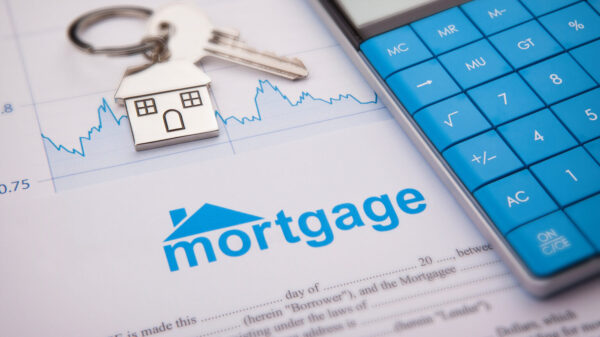The 30-year fixed mortgage rate today is 7.01%, while the 15-year fixed mortgage rate is 6.13%. The 30-year jumbo mortgage rate is 6.67%.
Mortgage rates for 30 years fixed
Mortgage rates for a 30-year fixed-rate loan are currently at 7.01%, down from 7.02% last week, according to Curinos data. Rates were 5.17% last month, bringing today’s rates higher and up from 4.52% last year.
Today, the 30-year fixed-rate average is 1.12 percentage point lower than the 52-week high of 8.13% and 1.13 percentage point higher than the 52-week low of 5.88%.
At the current 30-year fixed rate, you’ll pay around $666 per month for every $100,000 borrowed – a decrease from approximately $667 last week.
Fixed mortgage rates for 15 years
The 15-year fixed mortgage rate today is 6.13%, which is somewhat lower than last week's rate of 6.18%. However, this is a rise from 5.86% last month. And, at the same time last year, 15-year fixed rates were 5.26%, making today's rate about a full percentage point higher than it was a year ago.
At the current 15-year fixed rate, you'll pay around $851 per month for every $100,000 borrowed, down from approximately $854 last week.
Rates on 30-year jumbo mortgages
The 30-year jumbo mortgage rate today is 6.67%, which is marginally lower than last week's rate of 6.68%. This is a rise from the previous month's 5.66%. Last year at this time, 30-year jumbo rates were 4.81%, thus today's rate is significantly higher than a year ago.
At the current 30-year jumbo rate, you'll pay around $643 per month for every $100,000 borrowed, down from approximately $644 last week.
Methodology
Curinos use a defined set of characteristics to calculate average mortgage rates. The estimates for conventional mortgages are based on an owner-occupied, one-unit home with a loan amount of $350,000. The borrowing amount for jumbo mortgages is $750,000. These figures are based on an 80% loan-to-value ratio, a credit score of 740 or above, and a 60-day repayment period.
How are mortgage rates calculated?
Mortgage rates are controlled by a number of factors, including the broader economy, inflation, and Federal Reserve operations. Mortgage lenders then base their lending rates on these economic factors.
The mortgage rate you are given will be determined not just by the lender, but also by your credit score, income, debt-to-income (DTI) ratio, and other aspects of your financial profile.
How can I obtain the best mortgage interest rate?
There are various ways that may assist you in qualifying for the best mortgage rate, including:
- Checking your credit: When you apply for a mortgage, the lender will review your credit to determine your creditworthiness as well as your interest rate. In general, the higher your credit score, the lower your rate will be. So before you apply, it’s a good idea to check your credit to see where you stand. If you find any errors in your credit report, dispute them with the appropriate credit bureau to potentially boost your score.
- Comparing lenders: Taking the time to shop around and compare your options from as many lenders as possible can help you find the best deal. In addition to rates, make sure to also consider each lender’s terms, fees and eligibility requirements.
- Improving your credit score: If you have less-than-perfect credit and you can wait to apply for a mortgage, it could be worth working to improve your credit beforehand to qualify for better rates in the future. Some possible ways to boost your credit include paying all of your bills on time and aiming to keep your credit utilization (the amount of credit you’ve used compared to your credit limits) on credit cards and lines of credit at 30% or less.
- Reducing debt: Paying down debt could help lower your DTI ratio, which is how much you owe in monthly debt payments compared to your income. Having a lower DTI ratio can make you look like less of a risk in the eyes of a lender, which can result in a lower rate.
- Choosing a shorter repayment term: Lenders typically offer lower rates to borrowers who opt for shorter terms. For example, you’ll likely get a lower rate on a 15-year mortgage compared to a 30-year loan.
Source | USA Today








